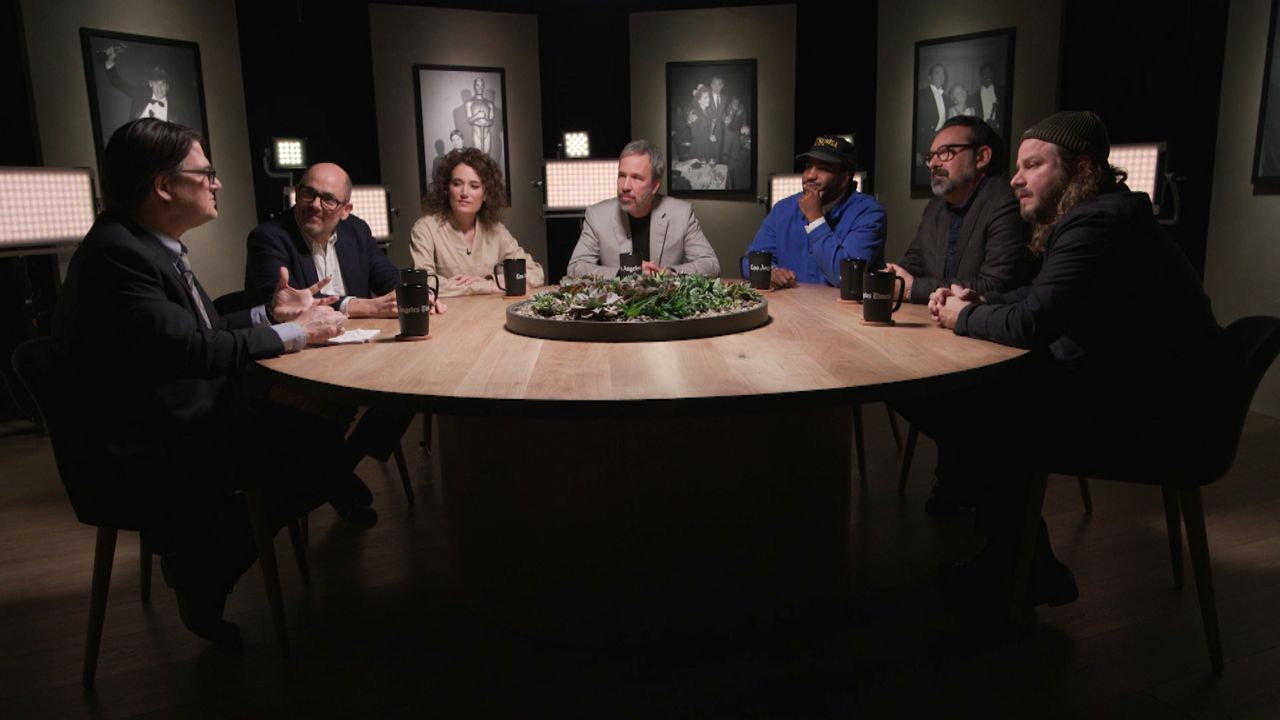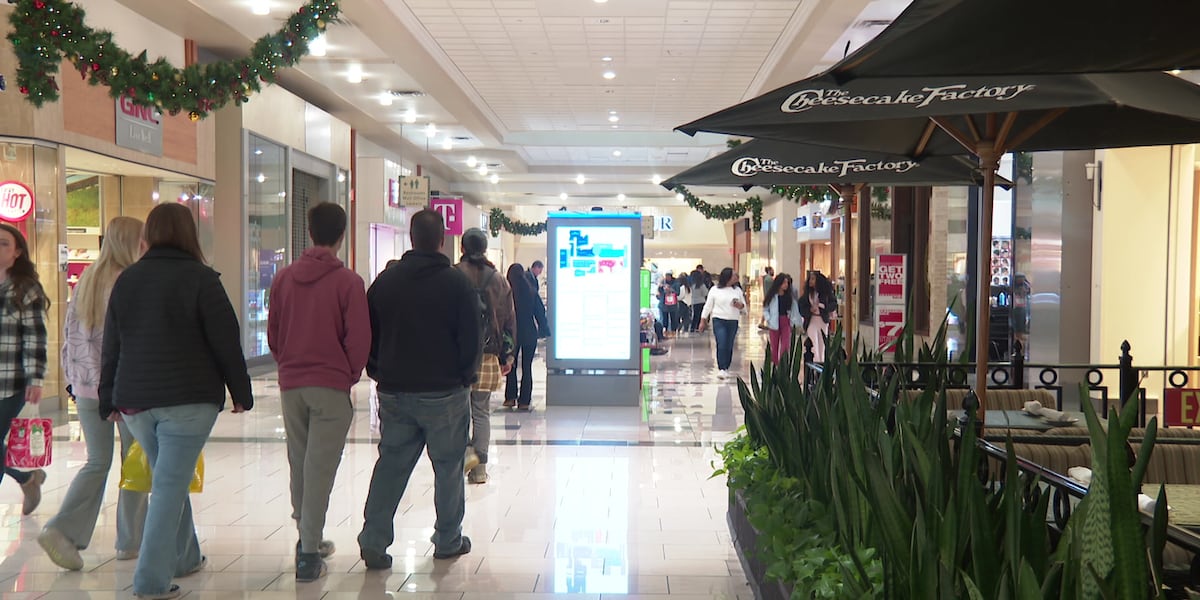Bussiness
Founder of Livonia-based nonprofit started helping women business owners 40 years ago

The founder of Livonia-based Great Lakes Women’s Business Council knew in college exactly what she wanted to do with her career: remove barriers and offer resources and networks to women business owners.
Immediately after earning a graduate degree from the University of Michigan, Michelle Richards founded the nonprofit council, which provides loans to small business owners, peer group mentoring programs and executive education training, among other offerings that are primarily focused on serving female business owners.
“My goal — my purpose — was to help create an organization that removed those barriers so that (women) could accomplish what they’re supposed to accomplish,” said Richards, who also is the organization’s executive director. It was the early 1980s, and she said many people couldn’t conceive of a woman owning a large business. “It’s just that there were some inherent barriers and bias in society that prevented them to readily get to that point.”
It wasn’t easy for women to own a business. The U.S. government wasn’t even tracking how many female-owned businesses there were until after the Women’s Business Ownership Act of 1988 was passed, making it difficult for her to argue why her nonprofit needed funding.
Forty years later, the world has changed but the mission hasn’t.
The Great Lakes Women’s Business Council has provided $8 million in loans to small business owners who have created about 1,800 jobs. The nonprofit now represents more than 1,400 Women’s Business Enterprise National Council-certified women’s business enterprises, a certification that signifies a business is at least 51% owned, controlled, operated and managed by a woman or women. Those businesses generate about $8.6 billion in annual revenue and employ 48,000 U.S. workers, the nonprofit said.
Earlier this year, the organization was named a U.S. Small Business Administration Women’s Business Center of Excellence.
As the Great Lakes Women’s Business Council celebrates its 40th anniversary, the Detroit Free Press talked with Richards about the organization’s journey, the progress it has made and the work that remains. This interview has been edited for clarity and brevity.
QUESTION: How did you come up with the idea to create the Great Lakes Women’s Business Council?
ANSWER: I was getting a master’s degree in social work and specializing in community organizing. What I realized is that if I wanted to make things better for women in this country, the fastest way to creating social change is through economics. The difference here is that small business has a different role in the economy than it does in training in trades. You can teach someone to be a plumber but if you teach them how to have a plumbing business, then you teach them how to have an asset to pass down in their family, become successful and become a community leader, which creates the social change element. I understood that concept. I didn’t know how I was going to go about it exactly because there weren’t other women’s business centers. So it was a lot of rolling the rock up the hill initially.
Q: How did you make the leap right out of school to founding a nonprofit?
A: Growing up, I had some learning disabilities, and my mother was such an amazing role model that (she said), “These aren’t weaknesses. These are just challenges that you have to address.” So I really always leaned into the hard stuff. I didn’t shy away from it. I (also) don’t believe in waiting to do what you’re supposed to do. I felt like it was my purpose, and so if it’s your purpose, you do it. The other was that I knew that if I put my head to it, the plan would come to be.
Q: After you got $60,000 from the city of Ann Arbor to start the organization, what was the first thing you did?
A: We had some community hearings from small businesses — primarily women and minorities — who talked about (difficulties) being able to access business loans. There was a lot of institutional bias. What we did is we started out as a loan program, making loans to businesses that could not get financing from conventional sources. So I became a banker, in a sense.
(The first loan I made) was to a woman-owned business that would do remote administrative assistance (for) other businesses. These days virtual assistants are a big deal and everybody does that but in those days, it was not, but I saw a future for it.
It was an interesting point in time. I had a lot of people tell me when I was going for money to foundations, corporations, cities and counties, that it was really a dumb idea. That is what they basically said.
Q: When you were hearing from people that your nonprofit wasn’t a good idea, how did you handle that? Did that feedback ever make you question what you were doing?
A: Well, to be honest, I knew differently. Part of it is the arrogance of a 24-year-old … you know everything. The other part of it was that I just thought, “They haven’t seen it yet. They don’t understand the vision.” The truth is, I needed to show them. Once there was a model, I thought, “They’re going to come back around.” They did. Specifically because I took community organizing classes, which talk about rebuilding and shaping communities, helped me to see that it was about creating a foundation and a model that people could understand. Even if it was a small model, they would be able to say, “Oh, yeah, see, I get it now.”
Q: What is that model?
A: We focus on providing opportunities and resources that, frankly, would not be typical to other business development organizations. We continue to be a community lender instead of taking people to the bank. We have a couple million dollars in our portfolio right now of loans we made. So if you can’t get financing — or frequently enough financing — we’ll come in and help you to meet what you need to do.
The second is that we have a women’s business center that is very unusual. We don’t focus on teaching women how to get into business. We teach women who are in business how to succeed, how to get to sustainable levels and get traction to second-stage growth. How we do that is we have a peer group mentoring program, where two or three women who are very successful will mentor anywhere from six to 15 women who are emerging. They share their networks, they share their contacts and they share their wisdom. The women in the group work together and sometimes go in together on contracts and opportunities. It’s a way to leverage what I call exponential growth.
In order to be successful, you have to have capital, you have to have capacity and you have to have customers. What that does is that it provides them with networks of women who keep connecting further and further.
Q: How did your mission evolve over the past 40 years?
A: Our mission hasn’t changed much in terms of really empowering those who are left behind in the economy to be successful. What has changed is the sophistication of several things. One: our team. Many of our team members have master’s degrees. Most of them have MBAs. People have to come here with some business experience of (working) in a small business or having one. The next is, is that the level of programming that we provide is very sophisticated and focuses at a different level. We’re not trying to repeat what other groups can do. We’re not teaching how to write a business plan. We’re teaching them about how to create a highly successful, dynamic and sustainable business.
We also provide women’s business certification, which is one of the best ways to gain a customer base. Most Fortune 1000 companies recognize this certification from the women from the Women’s Business Enterprise National Council. We are one of the 14 organizations around the country that certifies women, and it helps them to get entry into major corporations.
We teach them also through the Women’s Business Center how to put together their capability statement, a deck, to meet with buyers and create connections for them with those buyers.
Q: More broadly speaking, have you seen a lot of progress in terms of women being able to get loans and get the tools and resources to have a successful business? Or is there a lot more progress that needs to be made?
A: Yes and yes. So we have seen tremendous progress (with getting loans, for example). But at the same time, women are still getting less money on average in loans than their male counterparts.
Q: When you look ahead, what do you still hope to accomplish?
A: Well, I think it’s twofold. One is that we’re working more in the direction of women helping women. There’s something really powerful about that because we have to teach the women’s business community to invest in each other. There are more efforts around them mentoring, training and financially supporting the organization to pay for scholarships and other things for the women.
The second is that I am not leaving today but we need to have a really clear path for how I’m going to leave my skills, talents and history behind within the organization. I’m a strong believer that legacy is not what you create, it’s what you leave behind. So I spend a lot of time ensuring that I have the strongest leadership team here and ensuring that everyone here understands not only the mission, but any knowledge, any networks that they need, it’s now my primary job to make sure they have it so that the day that I step away, the organization not only doesn’t flounder, but it excels. New voices will even take a more prominent place and it’ll give it a new freshness and some new perspectives, and that’s really exciting. I’ll be sad and happy to see that happen. Sad because I won’t be part of it, but happy that the organization will continue. What’s most important is we’ve always been relevant, whatever the situation.
Contact Adrienne Roberts: amroberts@freepress.com









